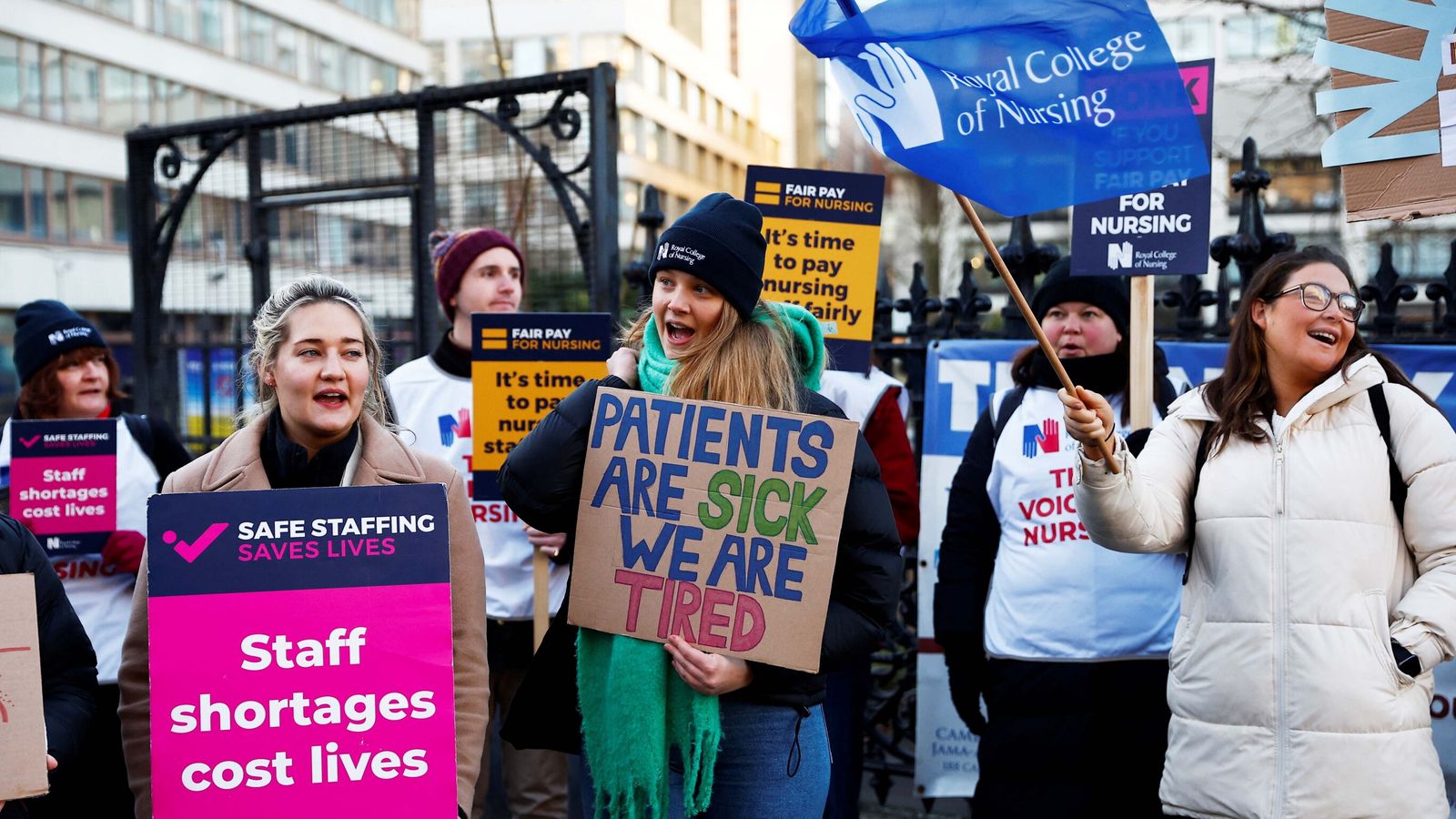NHS unions reach pay deal after government offers 5% rise

NHS unions have reached a pay deal with the government in a major breakthrough that could herald the end of strikes by frontline staff.
The offer consists of one-off payment of 2% of their salary for the current financial year 2022/23 and a 5% pay increase for 2023/24.
It will apply to frontline staff including nurses and ambulance workers but not junior doctors, who are involved in a separate dispute.
Health Secretary Steve Barclay said for a newly qualified nurse that is over £1800 this year on top of a payrise of over £1300 next year.
He said: “I hugely admire the incredible work of NHS staff, including during the pandemic and the progress they have made to tackle the resulting backlog.
“This offer will give nurses, paramedics, physiotherapists and other non-medical staff a fair pay rise while protecting our commitment to halve inflation.”
The offer will now be put to union members for a vote, with industrial action paused during that process.
The Royal College of Nursing, GMB and Unison said they will recommend their members accept the offer – but Unite said it was not good enough.
General secretary Sharon Graham said the decision ultimately lay with NHS staff and strikes will be paused while they are consulted on the offer.
Advertisement
But she added: “The offer from government is not one that Unite can recommend to our members.
“It is clear that this government does not hold the interest of workers or the NHS at heart. Their behaviour and disdain for NHS workers and workers generally is clear from their actions.
“Britain has a broken economy and workers are paying the price.”
Other unions were more welcoming of the agreement, even as they acknowledged it was “far from perfect”.
Rachel Harrison, GMB National Secretary, said if the offer is accepted by members it would be a “huge uplift for the lowest paid to keep them well above the Real Living Wage”.
She said: “Thanks to the strength and hard work of GMB’s NHS members, the government has gone from refusing to talk about pay this year to putting an extra 2.5 billion pounds on the table.
“GMB members should rightly be proud of themselves. It’s been a tough road but they have faced down the Department of Health and won an offer that we feel is the best that can be achieved at this stage through negotiation.”
Ms Harrison said progress has also been made on non-pay demands, such as addressing violence in the workplace.
Nursing staff ‘vindicated’
RCN General Secretary and Chief Executive, Pat Cullen, said: “The government was forced into these negotiations and to reopen the pay award as a result of the historic pressure from nursing staff. Members took the hardest of decisions to go on strike and I believe they have been vindicated today.”
The GMB, alongside the Royal College of Nursing (RCN), Unison and Unite had already paused strike action this month while undergoing “intensive” negotiations with the government over pay.
At the heart of the dispute was a demand for a pay increase for the current financial year, which ministers initially insisted was not affordable.
Tens of thousands of nurses, paramedics and other healthcare staff went on strike just before Christmas, then again in January and February.
Last month, the government finally agreed to talk about pay, averting several planned walkouts that would have seen thousands more operations cancelled.